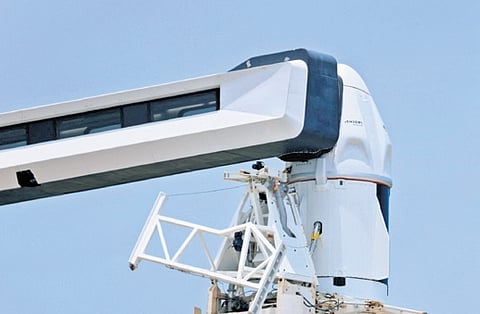

BENGALURU: After multiple delays and rescheduling of dates, the Indian Space Research Organisation (ISRO) on Wednesday said the most anticipated Axiom-4 space mission to the International Space Station (ISS) will launch on June 22.
Taking to ‘X’, ISRO announced the new date after Indian scientists held discussions with their counterparts from Poland and Hungary.
These two countries have sent an astronaut each on the 14-day manned mission to the ISS, along with India’s Gaganyatri Group Captain Shubhanshu Shukla and former NASA astronaut, who is the mission commander, Peggy Whitson. Members from Axiom Space and NASA were also part of the discussions held to address the delays and parameters.
“Based on the readiness status of the SpaceX Falcon-9 launch vehicle, the Dragon spacecraft, repairs in the Zvezda module of the space station, ascent corridor weather conditions, and the health and preparedness of the crew in quarantine, Axiom Space has informed that the next probable launch date is June 22, 2025,” ISRO said. Earlier on June 14, ISRO had announced that the mission would launch on June 19, 2025. But later the same day, it was withdrawn and ISRO said the next launch date would soon be announced.
The launch was initially targeted for May 29, but deferred to June 8, 2025, because of the observations in the electrical harness in the Crew Dragon Module. The launch was then postponed to June 9 because of the delay in the preparedness of the Falcon-9 rocket. The mission was then postponed to June 10 due to inclement weather at NASA’s Kennedy Space Center in Florida from where the launch was to take place.
Also, during inspections and hot fire tests that were conducted on June 8, the team had observed oxygen leak in the engine bay, besides anomalies in one of the engine actuators. The launch was then rescheduled to June 11, anticipating the issues to be addressed.
On June 11, NASA and ISRO flagged their concerns to Russian space agency Roscosmos to evaluate the new pressure signature in the Zvezda Service Module on the ISS due to the air leak. ISRO had recommended to Axiom Space, NASA and SpaceX to carry out in-situ repairs and conduct a low temperature leak test to validate the performance of system.